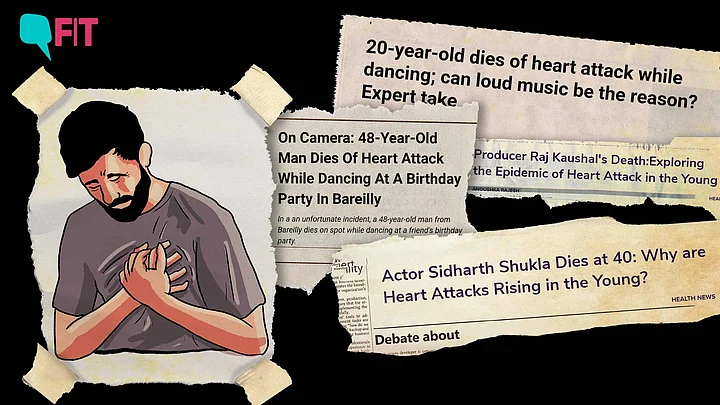"It's good that ICMR has done a formal study and settled the issue and speculation about how the (COVID-19) vaccines might lead to cardiac events."Dr Mukesh Goel, Cardiac Surgeon, Apollo Hospital, Delhi
The link between COVID-19 vaccines and the seemingly sudden rise in fatal heart attacks in young people in the past couple of years has been a point of much speculation and contention among the general public.
The chatter was fuelled, in large parts, by anecdotal evidence and a lack of reliable data on the matter.
On 21 November, however, the Indian Council of Medical Research (ICMR) released a 1.5-year-long study to put the years of conjecture to rest and examine what's really behind the rise in sudden deaths among young Indians since 2021.
The study found that COVID vaccination did not increase the risk of sudden death, rather reduced it to a degree. Further, it found that severe COVID-19 infections increased the risk of fatality even after recovery.
FIT asked senior cardiologists what they think of the study and its findings.
'Needed to Back What We Knew With Data'
Dr Aparna Jaswal, Director, Electrophysiology and Cardiac Pacing, Fortis Escorts Heart Institute, New Delhi: "We have realised from the study that the young people who have had sudden deaths are not linked to the COVID-19 vaccines. This is something we were all wanting to back up with evidence."
Dr Manish Bansal, Senior Director, Clinical & Preventive Cardiology, Heart Institute, Medanta Gurugram: "The study hasn't brought out anything new that we in the cardiology community didn't already know. But it has backed it with proof."
"There has not been any credible large-scale data so far to say that the (COVID) vaccines have caused an increase in risk of cardiac complications. The study gives evidence for the same thing."Dr Manish Bansal
The study collected data from 47 tertiary care hospitals across India, and involved case studies of 729 healthy individuals aged 18-45 years who suddenly died of unexplained causes between 1 October 2021 and 31 March 2023.
Dr Manish Bansal: "Realistically, its very tough to do a study comparing fatal outcomes in people who have received the vaccine and those who haven't. In India, most people have received the vaccine, and have received different doses. So, those limitations will be there. But within that, the sample size they've taken is a big number, enough to give us a clear idea. (Moreover), It's 729 deaths from across regions in India. So I think it's well represented in that sense too."
Heart Damage in Young People and Links to COVID
Dr Manish Bansal: "The study also reinforces what we know about the role of COVID infection in increasing the risk of cardiac events and heart damage."
Dr Aparna Jaswal: "The study gave us proof that if a person had severe COVID infection in the past requiring hospitalisation, they were at a higher risk of sudden death. Moreover, it told us that those who received two doses of the vaccine were actually protected."
‘Heart Attacks in Young People Is Not a New Trend'
Dr Mukesh Goel: "We have been seeing a steady rise in heart attacks in young people for the last 20 to 25 years. We (doctors, and cardiologists) have been raising this issue for years on public forums. The only thing is that there wasn't so much media attention before."
Dr Manish Bansal: "The steady rise in incidents of sudden death, particularly from heart attacks, in young people is nothing new. The awareness about the issue has become more, because of COVID, and also because of recent deaths among celebrities."
"The phenomenon, in India has more to do with the lifestyle (unhealthy eating, stress, lack of exercise), air pollution, other underlying causes, and COVID infections."Dr Manish Bansal
Dr Aparna Jaswal: "The study underscores that some lifestyle habits that young people should not engage in are binge alcohol drinking. Its better to consume 30 ml of alcohol every other day than binge drinking because it predisposes you to develop arrhythmias."
"Something else to remember is: don't go to the gym and begin with unaccustomed exercises. Train yourself gradually, do physical conditioning, and then reach there."

